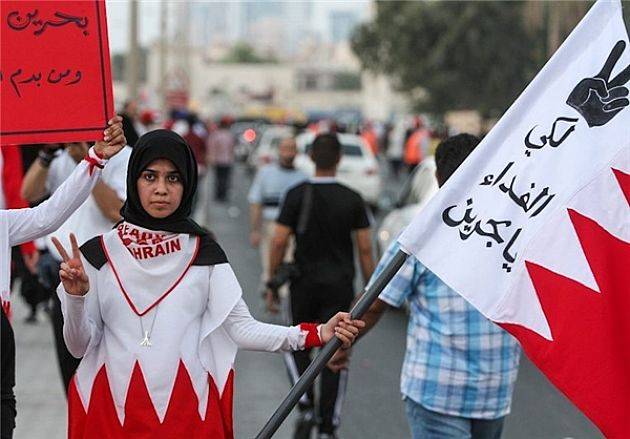Revolution Returns to Bahrain’s Streets

Developments in Bahraini society are impacted by social and mainly religious rifts. These rifts grew following the Islamic or Arab Awakening. Questioning the political legitimacy of this regime, foreign countries’ involvement or, in other words, the interdependence of Bahrain’s destiny with the intrusive policies of foreign powers in the Persian Gulf and the Middle East and not observing the rights of the majority in this country were the issues which were protested against in demonstrations. The events in Egypt, Tunisia and other countries prepared the ground for the Shiites in Bahrain to peacefully protest in the streets of Bahrain to demand their social and political demands. Their intention was to acquire the minimum demands. But in reality, the legitimate and peaceful demands of the Shiite community of Bahrain were linked with some regional and extra-regional considerations which further complicated the issues. The failure of suppressive measures caused the regime to conclude that forceful threats would not resolve the problem. Therefore, the Bahraini regime attempted to make compromises with the more moderate groups of the Shiite community. In other words, it attempted to create a rift between the more moderate Shiite groups but it has not yet succeeded in this regard.
The objectives of the measures taken by the Bahraini government after 2011 were as follows:
- Creating a rift between Bahrain’s revolutionary groups and dividing them into groups which are affiliated to outside forces and national groups
- Taking advantage of time with the excuse of preparing human rights reports and appointing fact-finding committees to prepare reports about behind-the-scene events
- Attempts to present protesters as terrorists and spreading the ideas of Islamophobia, Iranophobia and fear of Shiites
It seems that attempts made to pursue the objectives through peaceful and legitimate methods have now reached a deadlock and the regime does not intend to interact with the majority of the Bahraini people who are Shiites. Measures taken by the government of Bahrain, accepting regional and extra-regional intervention and replacing suppressive measures by using foreign forces are elements which have affected new developments. I believe that if the regime feels that it would perhaps be able to contain the people’s anger by arresting people or by institutionalizing the control of people’s revolutionary demands it would stabilize its political stability, it would be making a mistake because the problems are much deeper than that.

